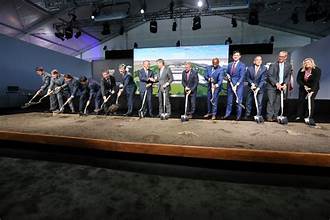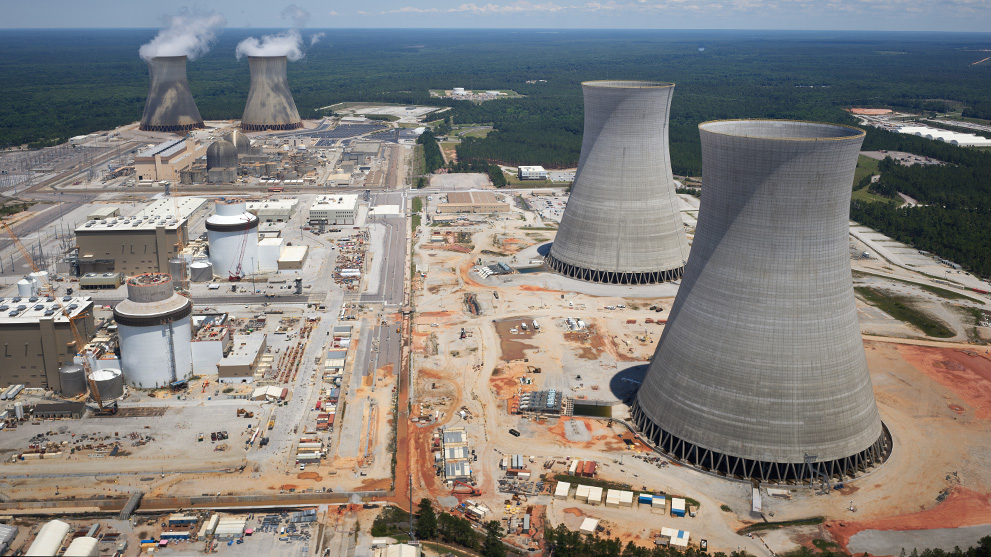Hyundai and LG Energy Solution Announce Joint Venture
Hyundai Motor Group and LG Energy Solution have officially announced a joint venture to build a new electric battery plant in southeast Georgia. This venture involves a substantial investment of $4.3 billion. Importantly, this facility will integrate with Hyundai’s upcoming electric vehicle assembly plant in the region, set to begin production by late 2025.
Commitment to Electric Vehicles
Hyundai Motor Co. CEO Jaehoon Chang expressed his belief that the battery plant will establish a strong foundation for leading the transition to electric vehicles. He emphasized the company’s commitment to accelerating the production of electrified Hyundai and Kia vehicles in North America. As a result, Hyundai Motor Group aims to secure a prominent position in the global automotive industry.
Previous Investments and Job Creation
In 2022, Hyundai announced plans to invest $5.5 billion in Ellabell, near Savannah, to create an electric vehicle and battery assembly plant. This facility is expected to employ 8,100 individuals and begin manufacturing vehicles in 2025. Garrison Douglas, spokesperson for Governor Brian Kemp, confirmed that the battery plant will generate 3,000 jobs, and this figure is part of the overall employment projection.
Production Capacity and Future Expansion
The Hyundai/LG plant is projected to supply batteries for approximately 300,000 electric vehicles each year. This output aligns with the initial production estimates of the adjoining vehicle assembly plant. Furthermore, Hyundai plans for potential expansion, indicating that the Georgia plant could eventually manufacture up to 500,000 vehicles annually.
Governor’s Support and Regional Impact
Governor Brian Kemp praised the joint venture, stating that it aligns perfectly with Georgia’s ambition to become the nation’s electric vehicle capital. Moreover, the Hyundai development has attracted investments from various auto parts suppliers, totaling over $2 billion. This investment is expected to create an additional 4,800 jobs in the surrounding region.
Federal Incentives Driving Growth
These announcements highlight the growing trend of electric vehicle and battery projects across the United States. Under the U.S. Inflation Reduction Act, electric vehicles must be assembled in North America and utilize a certain percentage of battery components and minerals sourced from North America or U.S. free trade partners to qualify for the full $7,500 EV tax credit. Presently, no Hyundai or Kia vehicles meet the criteria for this tax credit.
Senator Jon Ossoff emphasized that the manufacturing incentives in the U.S. Inflation Reduction Act continue to attract significant investment and job creation in Georgia. He remains dedicated to making the state a leader in advanced energy production.
LG’s Commitment to U.S. Expansion
LG Energy Solution revealed that the new battery plant in Georgia will mark its seventh facility in the United States. This underscores the company’s commitment to expanding production domestically. These developments clearly illustrate how federal incentives are drawing manufacturers to invest in the U.S.
Additional Investments in Georgia
This announcement represents the second significant electric battery plant that Hyundai is building in Georgia. In December, Hyundai and SK On, a unit of South Korea’s SK Group, announced a joint investment of $4 billion to $5 billion in a new plant northwest of Atlanta. This facility will supply electric batteries for Hyundai and Kia vehicles manufactured in the United States. Operations are expected to start in 2025, creating around 3,500 jobs.
Broader Manufacturing Strategy
Hyundai’s battery requirements extend beyond the Ellabell plant. The company currently assembles electric vehicles in Montgomery, Alabama, and announced plans in April to produce the electric Kia EV9 large SUV at its facility in West Point, Georgia. By partnering with LG and SK, Hyundai enhances its supplier base, providing multiple manufacturers for sourcing.
Incentives and Support
Since the battery plant is part of the larger Hyundai complex, no additional incentives will be offered. However, the state of Georgia and local governments have pledged significant support, including $1.8 billion in tax breaks and other incentives. This subsidy package represents the largest ever promised by a U.S. state to an automotive plant, according to Greg LeRoy, executive director of Good Jobs First, an organization that critiques subsidies provided to private companies.




